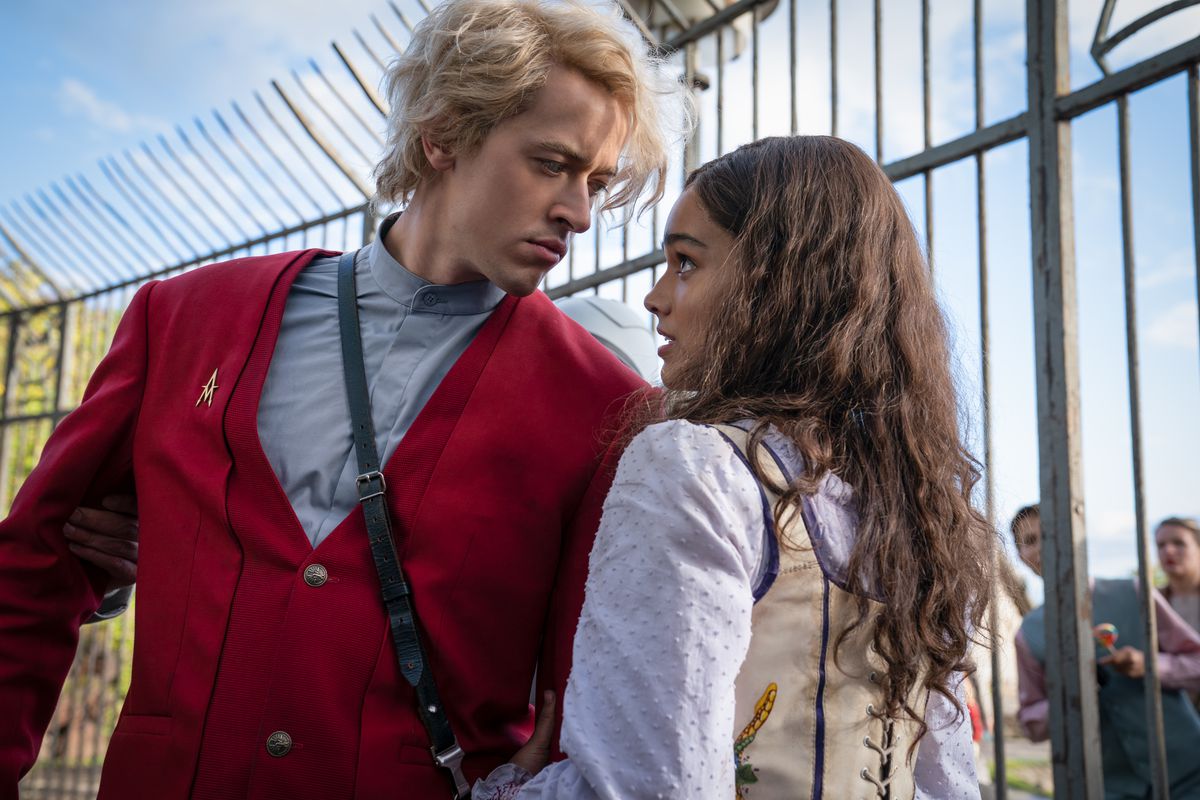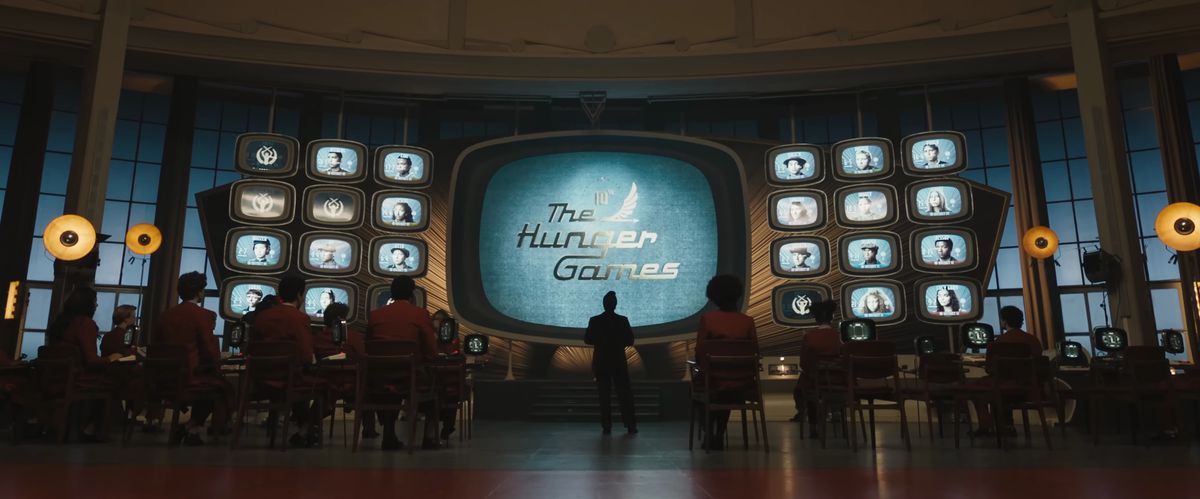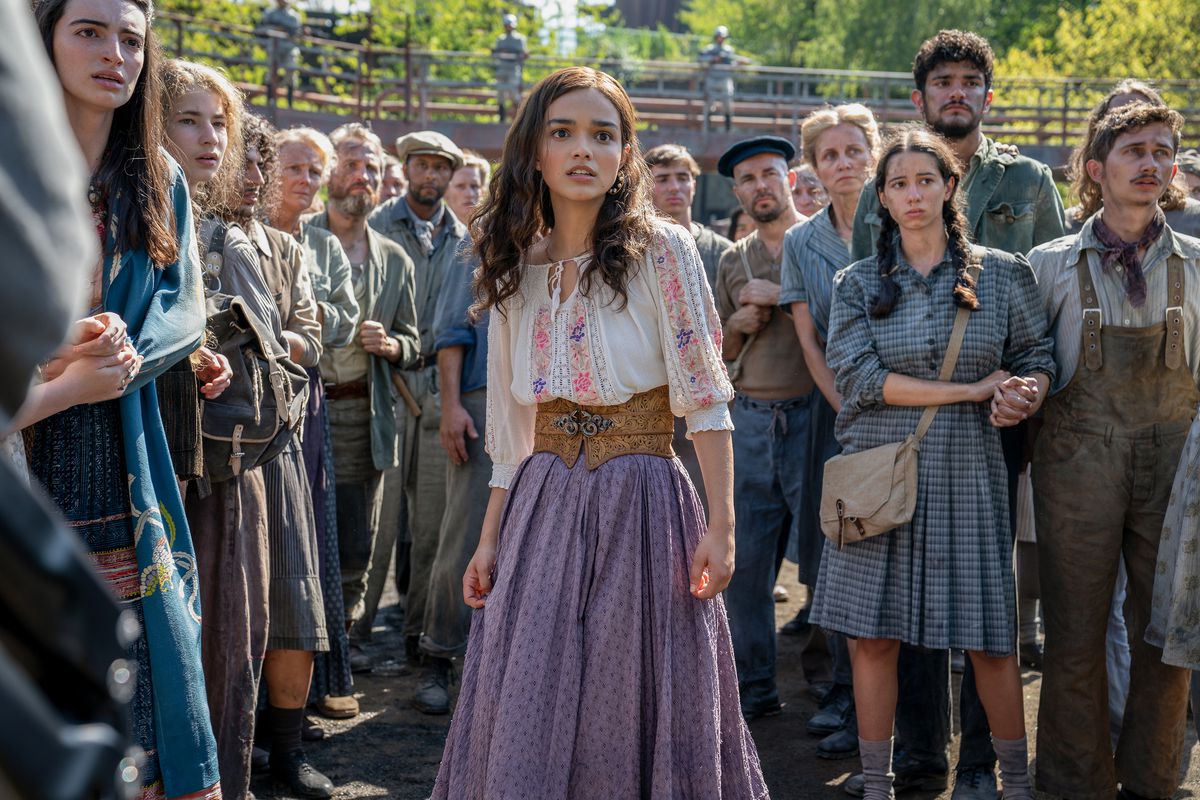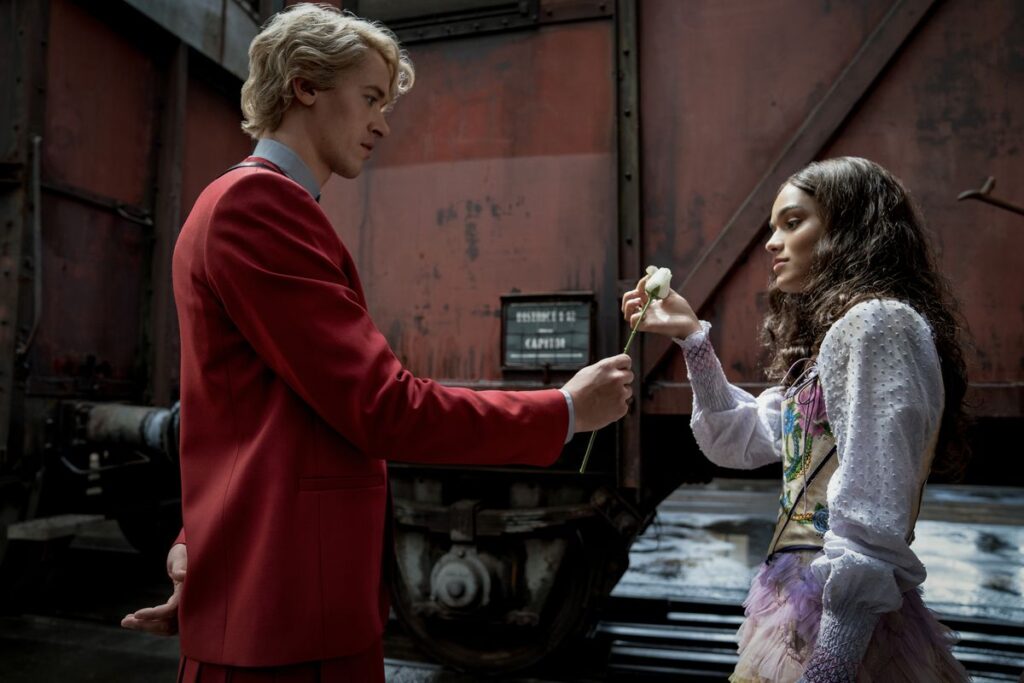In 2012, the first Hunger Games movie sparked a revolution.
Suzanne Collins’ Hunger Games books were already bestsellers at that point, but the success of the movie adaptation cemented their cultural impact, ushering in an era of female-led action movies — and more significantly, a huge wave of young adult dystopian stories, in print and on film and TV. And yet, with each imitator, the sheer brilliance of the Hunger Games was lost: its clever world-building, its doomed-protagonist narrative, its subverted character tropes. The trend eventually tapered off because of oversaturation and lack of innovation.
In 2020, Collins returned with a new book in the Hunger Games world — this time a prequel with an origin story for the original trilogy’s villain, Panem President Coriolanus Snow. The fans initially reacted with skepticism and outrage, with some citing the choice of protagonist as “tone-deaf.” But when the book finally came out, readers remembered why the Hunger Games trilogy kickstarted a trend: Collins is a great storyteller who manages the themes of oppression and rebellion deftly.
Like the book it’s based on, The Ballad of Songbirds & Snakes speaks to the sheer brilliance of Collins’ world-building, and the sharp way she tackles inequality and authoritarianism. It’s a reminder of just how good YA dystopia stories can be when they’re done well. Pivoting the perspective to show the power of propaganda, and how easy it is to radicalize people into viewing others as less than human, evolves the conversation around YA dystopia to reflect modern anxieties. It’s a sharp, exciting movie — one that finally gives YA dystopias the ending that the genre trend deserves.
[Ed. note: This review contains some setup spoilers for The Hunger Games: The Ballad of Songbirds & Snakes, as well as spoilers for the Hunger Games trilogy.]
Photo: Murray Close/Lionsgate
From director Francis Lawrence (who helmed the last three Hunger Games movies), The Ballad of Songbirds & Snakes isn’t just an origin story for Coriolanus Snow (Tom Blyth), the formidable dictator who serves as the primary villain for most of the main Hunger Games trilogy. It’s also an origin for the Games themselves, showing how they started as a brutal yet simple punishment for rebel factions in Panem and became the grand spectacle seen in the mainline Hunger Games trilogy. At the same time they’re changing, Snow is changing too — from an ambitious, cunning, yet mostly benign 18-year-old to a hardened, cutthroat politician.
The story takes place more than 60 years before the original Hunger Games books, and the Games are very different. They still involve forcing the impoverished outlying Districts to send 24 child Tributes to the Capitol, where they’re forced to kill each other in a public arena. But prior to their death match, the kids are kept in cages and treated like livestock for the slaughter. No one in the Capitol really cares about the Games the way they do in the original movies. The Capitol’s denizens are war-weary and in the process of rebuilding, so watching children brutally murder each other isn’t high on their list of priorities.
With viewership waning, Snow and the rest of his graduating class are assigned Tributes and ordered to find ways of increasing the Games’ popularity. The student with the winning tribute will score a coveted scholarship. And Snow, whose once-wealthy family has fallen into deep and secret poverty, needs to win. He ends up with the District 12 Tribute, a musician named Lucy Gray Baird (Rachel Zegler), whose natural flair for showmanship inspires him to make the Tributes into a spectacle, turning them into larger-than-life icons and letting the Capitol citizens get to know them so they become hooked and invested in their chosen Tribute’s fate. Snow and Baird are drawn to each other, though it’s never entirely clear who’s using who in their twisted game.

Photo: Murray Close/Lionsgate
Unlike the mainline Hunger Games movies, Songbirds & Snakes features less action and less of the Games themselves. At least, less of the Games in the way original Hunger Games protagonists Katniss (Jennifer Lawrence) and Peeta (Josh Hutcherson) experienced them: as a glamorous televised spectacle. Songbirds & Snakes’ early proto version of the Games doesn’t take place in a high-tech arena — it’s in an abandoned stadium. There are no Tribute parades, fancy costumes, or training exercises.
But that’s the point. This opening era shows the Games stripped of the gaudy trimmings: bleak, brutal, raw, and sad. The Capitol citizens, fresh off their own wartime traumas, find it hard to watch. And that’s exactly why Lucy Gray’s charisma sparks with Snow, inspiring him to draw it out and urge the Gamemakers to focus more on the Tributes and their stories.
It’s fascinating to see how the Games as we’re familiar with them came to be. The movie takes place decades before the main trilogy, and it’s especially compelling to see that conveyed not just through the less showy Games, but also through set design. The original movies give the Capitol a sleek modernity, but in the prequel, the city has a retrofuture vibe, with black-and-white television screens and chrome accents. There’s also a touch of Brutalist architecture that helps emphasize the bleak postwar nature of the Capitol. As with the books and the original movies, the little touches of world-building strengthen the core story.

Image: Lionsgate
As for the story itself, Songbirds & Snakes is an incredibly faithful adaptation of the book, though its ending is streamlined for the screen version. Blyth does an admirable job of walking the line between sympathetic antihero and cold-hearted villain. He’s a charming liar and an expert manipulator, to the point where fans just might want to root for him — before he shows his true colors, his selfish and Machiavellian nature. While Zegler plays the role of charismatic songstress well, she doesn’t sell Lucy Gray’s cunning as much as Blyth sells Snow’s. The supporting cast also brings their A-game, particularly Viola Davis as the cruel Head Gamemaker Dr. Volumnia Gaul. Davis fully commits to the twisted mastermind who believes that humanity, at its core, is dark and depraved.
But what really makes Songbirds & Snakes so brilliant is that it’s exactly what the YA dystopia genre needed. It’s a reminder of why it had so much impact in the first place, but more importantly, it’s a final piece that flips the perspective and asks us all — the viewers, the readers, and the writers of the Hunger Games imitators — why we even liked the genre in the first place.

Photo: Murray Close/Lionsgate
As the YA dystopia craze was tapering off, it became easy to snark at the derivative books and movies that only took on the set dressing of the Hunger Games books — a female protagonist good at fighting, an evil government running some oppressive yet cool gimmick, a hot love interest and a probable love triangle. But The Ballad of Songbirds & Snakes emphasizes that the reason Collins’ original trilogy was so compelling was because it went beyond those simple signifiers. Francis Lawrence and Suzanne Collins strip away the spectacle of the Games — the set dressing that so many pale imitators relied on — and show us that the Hunger Games was always about how oppressors will use entertainment, presentation, and propaganda to enforce inequality as the norm.
Collins’ book and Lawrence’s movie don’t redo the action of the Hunger Games events; they dissect them, then force us to sit on the Capitol side of the equation. They demand to know why we were even drawn to the love triangle, the pretty dresses, and the themed arenas in the first place. We’ve always been the spectators, after all, watching Katniss’ story from a safe distance. The Ballad of Songbirds & Snakes shows us what happens if we get too carried away by propaganda, luxury, and the promise of safety. In that way, it’s a fitting end to the franchise — and a fitting end to the way the genre evolved into a beast of its own.
The Hunger Games: The Ballad of Songbirds & Snakes will hit theaters on Nov. 17.

